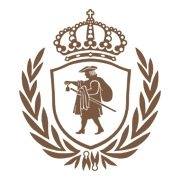Contents
SUMMARY
The Swedish School of Textiles is part of the University of Borås in Sweden and offers undergraduate, master’s and doctoral programmes that combine creative design with advanced engineering and management studies. Known for strong industry ties and a commitment to sustainability, the school has become an international hub for research, innovation and practical training in textiles and fashion.
HISTORY
The Swedish School of Textiles traces its origins to 1866, when the Borås Technical Weaving School was founded to train skilled weavers for the region’s growing textile industry. Borås had a long history of textile production, and the creation of a formal school was seen as essential to maintain the town’s reputation for high-quality fabrics. In 1936 the institution became the Textile Institute, broadening its remit beyond weaving to cover a wider range of textile technologies. This transition marked a shift from a purely craft-based focus to a technical and scientific approach to textile production.
Per the official website: “We believe you can go anywhere if you have the right foundation. This is why we are confident that our unique melting pot of solid knowledge, cutting-edge research, and interdisciplinary approach will lay the foundation for the sustainable lifestyle of the future.”
By the mid-twentieth century the Institute had expanded its curriculum to include advanced textile engineering and design. Modern machinery, research facilities and links with local mills ensured students were trained to meet the changing demands of the industry. In 1986 the Institute was incorporated into Sweden’s higher-education system and renamed the Swedish School of Textiles. This move brought university status, allowing for academic degrees, advanced research and greater collaboration with other institutions.
The following decades saw significant internationalisation. Programmes began to be offered in English, research partnerships were developed with universities abroad, and students from around the world were attracted to Borås to study. Sustainability became a central theme in the early twenty-first century. The school launched major research projects on circular fashion, smart textiles and environmentally responsible production, reflecting the industry’s shift toward ecological responsibility.
Today the Swedish School of Textiles is a recognised leader in textile and fashion education, with a modern campus in the Textile Fashion Center in Borås and an active role in shaping national policy on sustainable textiles and fashion.
VISION
The founding vision of the Swedish School of Textiles was to provide high-quality technical training to support Sweden’s textile industry. From the outset, the aim was to combine traditional craftsmanship with the latest weaving technology so that graduates could drive innovation in fabric production. Over time the vision expanded to embrace a broader integration of design, engineering and management. Today the vision places equal weight on creativity, technology and sustainability. By fostering international collaboration and cutting-edge research, the school strives to prepare graduates who will lead the global textile and fashion industries towards a more innovative and environmentally responsible future.
TOP COURSES
Undergraduate programmes include Fashion Design, Textile Design, Textile Engineering, Textile Product Development and Entrepreneurship. These courses provide a balance of creative studio work and technical training, ensuring that students graduate with both artistic and scientific skills. The master’s programmes are taught in English and cover Textile Management, Fashion Marketing and Management, Textile Engineering, and Technical Textile Innovation. These degree courses often involve research projects or industry collaborations. Additionally, doctoral education is available in Textile Management and in Textile Engineering and Design. Research areas include smart textiles, circular economy practices, and new material development, providing opportunities for graduates to work in academic research or high-level industry innovation.
EXECUTIVE BOARD
The current Head of School is Professor Mats Tinnsten. Other senior academic and administrative leaders oversee research, education, and industry collaboration across the school departments.
JOB INTEGRATION RATE
Graduates of the Swedish School of Textiles benefit from strong industry connections and a well-established alumni network, leading to high rates of employment soon after graduation. Many students secure positions in design houses, textile engineering firms, retail management, and research organisations within months of completing their studies. Although precise annual figures vary by programme, surveys and industry feedback consistently show that a large majority of graduates enter relevant employment or advanced study within the first year, reflecting the school’s practical training and close collaboration with the textile and fashion industries.
AWARDS AND RECOGNITION
The Swedish School of Textiles is internationally recognised as one of the leading institutions for fashion and textile education. Its annual graduate fashion show attracts global attention, and the school regularly appears in rankings of top fashion and design schools. The Swedish government has entrusted the school with major national initiatives, including leadership of the Textile & Fashion 2030 platform, acknowledging its expertise in sustainable fashion and textile innovation. Alumni and students have earned numerous honours in international competitions. Notable graduates have gone on to win prestigious fashion prizes and showcase their collections at leading fashion weeks, enhancing the school’s reputation as a launchpad for influential designers and innovators.


